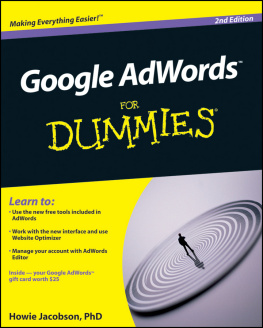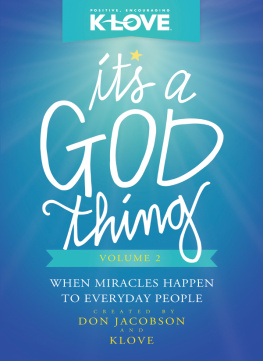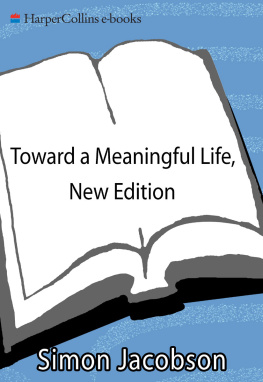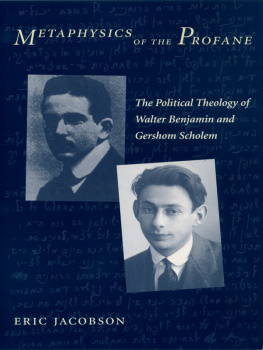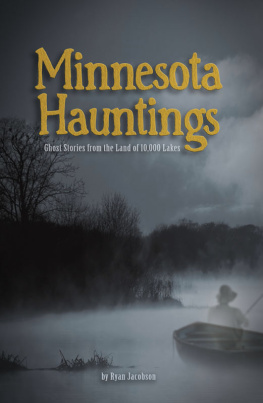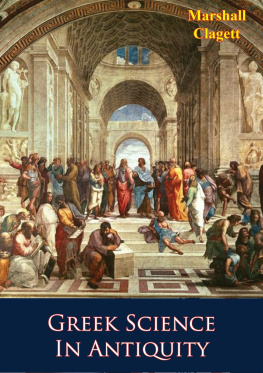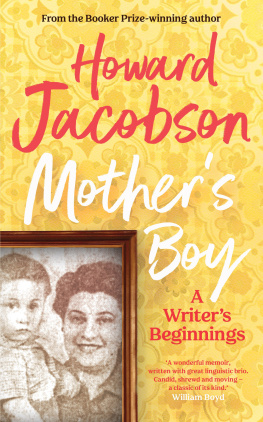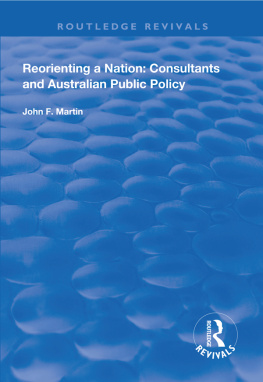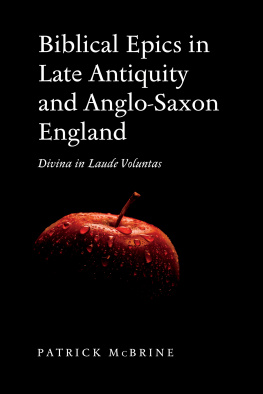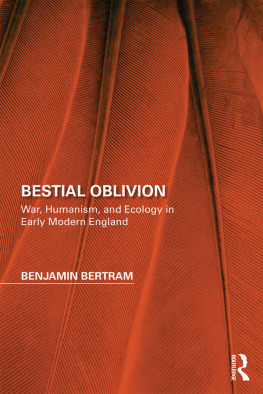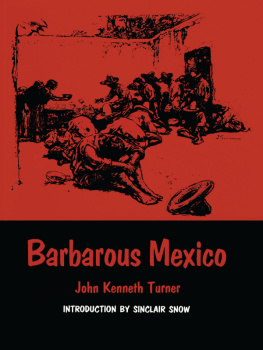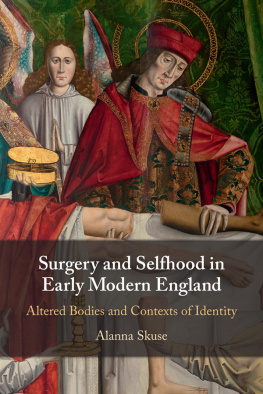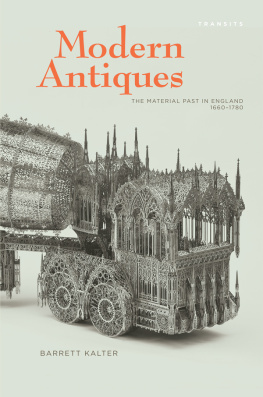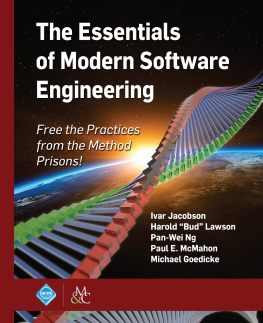Barbarous Antiquity
BARBAROUS
ANTIQUITY

Reorienting the Past in the Poetry
of Early Modern England
MIRIAM JACOBSON

Copyright 2014 University of Pennsylvania Press
All rights reserved. Except for brief quotations used for
purposes of review or scholarly citation, none of this book
may be reproduced in any form by any means without
written permission from the publisher.
Published by
University of Pennsylvania Press
Philadelphia, Pennsylvania 19104-4112
www.upenn.edu/pennpress
Printed in the United States of America on acid-free paper
10 9 8 7 6 5 4 3 2 1
Library of Congress Cataloging-in-Publication Data
Jacobson, Miriam Emma.
Barbarous antiquity : reorienting the past in the poetry of
early modern England / Miriam Jacobson. 1st ed.
p. cm.
Includes bibliographical references and index.
ISBN 978-0-8122-4632-2 (hardcover : alk. paper)
1. English poetryEarly modern, 1500-1700History and criticism. 2. English languageEarly modern, 1500-1700Diction. 3. English literatureClassical influences. 4. English literatureForeign influences. 5. Great BritainCommerceMiddle East. 6. Middle EastCommerceGreat Britain. 7. CommerceTerminology. 8. Commercial products in literature. I. Title.
PR535.L3J33 2014
821'.309357dc23
2014004922
For my parents
Contents

Illustrations

Figure 1. Ben Jonsons copy of George Puttenhams
The Arte of English Poesie
Figure 2. Geometrical shapes and lozenge-shaped poems,
The Arte of English Poesie
Introduction

Trafficking with Antiquity: Trade,
Poetry, and Remediation
In the poetry of late sixteenth-century England, writers struggled with ambivalence toward ancient Greek and Latin poetic paradigms. Classical antiquity was already estranged: as a fragmented, partially obscured, and lost golden age, it was only partly accessible through its literary remains. Though they wrote in vernacular English, most early modern writers were nevertheless schooled in Latin from childhood. As they wrestled with this literary legacy, writers turned to contemporary mercantile trade for new models and metaphors. Much of this trade was located in the Levant, the same space occupied by the classical myths that inspired much of early modern poetry. In this way, the classical antiquity represented in early modern English poetry became newly barbarous.
The growing appetite for foreign goods and Englands increased diplomacy with the Ottoman Empire had an impact not only on early modern drama but on poetry as well, and this can be traced, in part, through philology. In 1581, the Turkey Company was founded, the first successful English trade company to begin importing goods into England directly from Turkey (previously the Russia Company traded with the East, attempting trade with Persia). In 1593, the Turkey Company officially became the Levant Company. The first English ambassadors to the Ottoman Empire were merchants; thus, Anglo-Ottoman diplomatic relations were from the start bound up with trade. And with trade came new imports and new, imported English words for such things, words for things that, though they must have been known to the ancient classical world, did not have Greek or Latin names.adopted and assimilated by English poets, figuring prominently in poetry that still paid homage to ancient Greek and Roman models.
It would be a Herculean task to document the number of newly assimilated late sixteenth-century English words that describe goods and practices imported from the Far East and North Africa by way of the Ottoman Mediterranean, a task that no one has accomplished thus far. The terms for the different types of flowering bulbs imported from Turkeyincluding tulip, which takes its name from the Persian word for turbanwere so numerous that they took up twenty-five additional pages between the first and second editions of Gerards Herball in 1597 and 1633.
In early modern English, the word import functioned only as a verb, not as a noun in the sense that I am using it.
We can draw a parallel between these imported words currency in English and the way the goods they refer to were imported through early modern mercantile markets. These words might be seen as global versions of what Pierre Bourdieu has termed the economy of linguistic exchange. Each of the words this book examines forms a point in this web composed of many different associative strands. The meaning of the word thus fluctuates throughout the early modern text, just as it fluctuates throughout early modern culture.
Just as the imported goods in question did not supplant established commodities, these words augmented English vocabularies. As poetic currency, new words did not replace existing imagery; they enhanced it. Even in English translations of Latin, new words amplify the original text: the early modern English word cipher (zero, imported from the Middle East) shows up in Marlowes translation of Ovids Amores 3.6 to describe impotence, and the word orient (nacreous) appears several times in Philemon Hollands translation of Plinys Historia Naturalis, describing the luminescent quality of pearls.adopted through contact with Arab and South Asian mathematical culture, and jewel merchants brought back pearls from the Persian Gulf and Sri Lanka, utilizing the term orient as a way of grading and valuing a gem.
The central premise of Barbarous Antiquity is that the growing English appetite for strange things and stranger words extended to literary production: poets and printers of the period responded to the same allure by incorporating foreign words and images into their poetrytexts that simultaneously paid homage to ancient Greek and Roman writers and styles. These words and images inaugurate a new poetic economy, reconfiguring cultural attitudes toward ancient and modern, East and West, and redefining what it meant to write and publish poetry in English during the Renaissance. Often imported words or names for imported things appear only a few times within a poetic text, but what matters is their placement at key moments of the narrative, not their frequency. Working together with imagery, as verbal representations of foreign merchandise, words and things create new networks of associations with early modern overseas trade.
Although early modern global trade and Anglo-Ottoman relations have been a popular topic in early modern literary scholarship, few studies have turned from analyses of drama to poetry.
As Jonathan Burton has demonstrated, early modern English poetry is fairly uninterested in Turkish racial or religious identity, other than to stereotype it.As this book will show, early modern poetry depicted Englands exchanges with trading partners to the East and South differently from drama, through language and imagery of imported commodities rather than through positive or negative representations of Ottoman identity. Commodities imported from the eastern Mediterranean were often ornate luxury goods, which had much in common with early modern metaphors for poetic ornament as oriental gemstones, imported cosmetics, pigments, and dyes.
Next page

